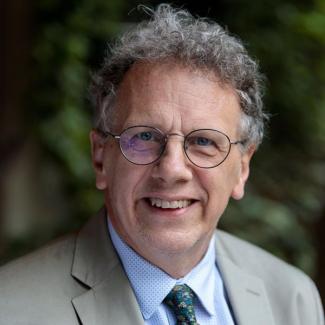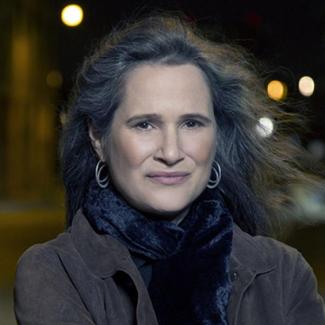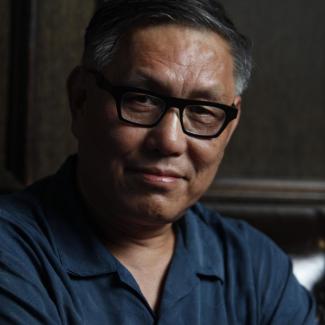
This year’s Humanities Day celebrates its 41st year of showcasing the power of art, literature, philosophy, music, linguistics, and languages. Of the almost thirty presenters, three Department of Music faculty will present sessions on various music-related topics on October 16. Learn more about all the Humanities Day sessions and register to attend on the Humanities Day website.
Range and Race: Vittoria Tesi Tramontini as Singer and Curio
Presented by Robert L. Kendrick
October 16, 9:30 to 10:30 AM
In-person, Harper Memorial Library, Room 130
For good reason, castrati and some female sopranos attracted much scholarly attention in 18th-century opera studies. One famed female contralto, Vittoria Tesi Tramontini, had a stellar career in Italy and Austria but had an unusual background. She was born the child of a sub-Saharan African servant and a Florentine woman in the Medici Court.

Robert L. Kendrick teaches courses on European music, 1500–1800, as well as on Latin American ethnomusicology. His research focuses on issues of the musically sacred in and out of Christian liturgy. His most recent book is Fruits of the Cross: Passiontide Music Theater in Vienna (University of California Press, 2019). Kendrick is the William Colvin Professor in the Departments of Music and Romance Languages and Literatures and the College at the University of Chicago.
Tracing the Sob: The Last Castrato, Verismo Opera, and Early Phonography
Presented by Martha Feldman
October 16, 1:30 to 2:30 PM
In-person, Stuart Hall, Room 104
In 1902–1904, when phonography was in its infancy, the voice of the last castrato Alessandro Moreschi was recorded to preserve a vanishing performance tradition. How might an archaeology that goes beyond those recordings uncover more sonic remains than meet the ear? How might it give purchase on Moreschi’s idiosyncratic and bewildering vocal habits as acoustic shards of past practices that surface in the form of what Derrida called a trace—above all laryngeal catches in the throat manifested as unpitched phonations, aspirates, large upward scoops, and even sobs? This session approaches those questions through comparative listening to early recordings by other singers as well as through several forking and interrelated traditions, including castrato and bel canto singing, theories of ornamentation, and vocal pedagogies.

Martha Feldman is a specialist in vocal musics from 1500 to the present. She has published City Culture and the Madrigal at Venice (University of Chicago Press, 1995), Opera and Sovereignty: Transforming Myths in 18th-Century Italy (University of Chicago Press, 2007), and The Castrato: Reflections on Natures and Kinds (University of California Press, 2015), and co-edited with Bonnie Gordon The Courtesan’s Arts (Oxford University Press, 2006) and with Judith T. Zeitlin The Voice as Something More: Essays toward Materiality (University of Chicago Press, 2019). Recently, Feldman has been working on the entanglements of voice with music historiography, race, and alterity and is writing a book called The Castrato Phantom: Moreschi, Fellini, and the Sacred Vernacular in Rome. She is the Ferdinand Schevill Distinguished Service Professor in the Department of Music and Theater and Performance Studies and the College at the University of Chicago.
Songs of Exile and Return
Presented by Philip V. Bohlman
October 16, 3:00 to 4:00 PM
In-person, Fulton Recital Hall, Goodspeed Hall 4th Floor
In the final chapter of its “Babylon Project,” the New Budapest Orpheum Society explores the transformation of exile to return—the powerful chronicles that grow around dispossessed peoples. Throughout human history exile has taken many forms, resulting from the tragic loss of homeland, as well as the human suffering that accompanies a pandemic. In its Humanities Day performance, the New Budapest Orpheum Society weaves songs of return, ancient and modern, from diverse cabaret repertories, into narratives of reckoning with the lived histories we increasingly witness in our own past and present.

Philip V. Bohlman most recently published the second, revised edition of World Music: A Very Short Introduction (Oxford University Press, 2020) and Heiner Müller and Heiner Goebbels’s Wolokolamsker Chaussee (Bloomsbury Press, 2021). He is the Ludwig Rosenberger Distinguished Service Professor in the Department of Music, as well as the Artistic Director of the Division of the Arts and Humanities’ ensemble-in-residence, the New Budapest Orpheum Society, at the University of Chicago.
In addition to these Department of Music faculty presentations, world-renowned art historian Wu Hung will deliver this year’s Keynote Address.
Keynote Address: In the Name of Art—Destruction and Reconstruction
Presented by Wu Hung
October 16, 11:00 AM to 12:00 PM
In-person & virtual, Mandel Hall
In human history, works of art are associated not only with creative imagination but also with constant destructive and reconstructive efforts. This presentation reflects on the destruction of Buddhist sites in China during the early 20th century, conducted not as iconoclastic acts but “in the name of art.” Political and economic factors undoubtedly contributed to such events, but was art historical scholarship itself also partially responsible for these tragedies? More important, how should today’s art historians and museum curators deal with this painful past?

Wu Hung’s research encompasses traditional and contemporary Chinese art, with a new interest in connecting art of different times and places into complex narratives. He has written many books and numerous articles and curated more than 80 exhibitions around the world. Among his multiple awards and honors, he was selected as the 2018 Distinguished Scholar by the College Art Association and received an Honorary Degree from Harvard University in 2019 for his contributions to the arts. At the University of Chicago, he is the Harrie A. Vanderstappen Distinguished Service Professor of Art History and Director of the Center for the Art of East Asia.
Learn more about this year’s Humanities Day on their website.
